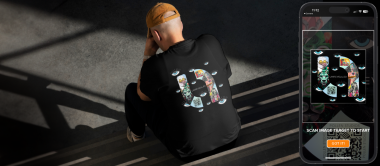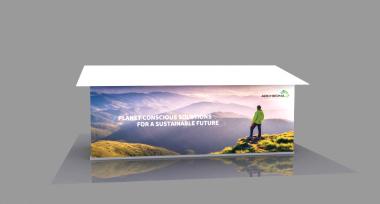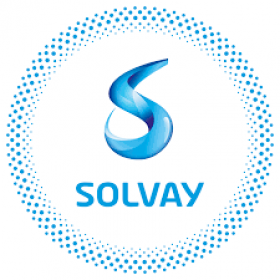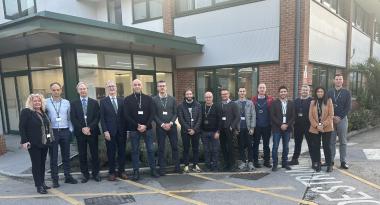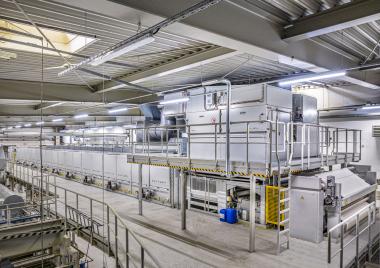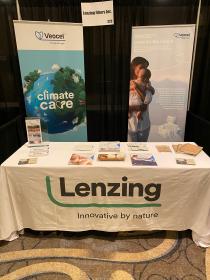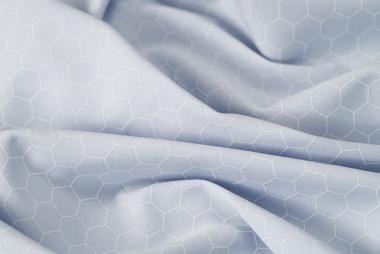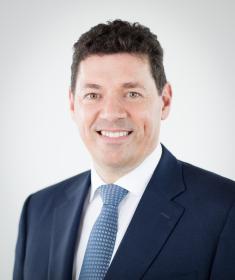Avery Dennison and NRVLD showcase T-shirts with AR experience
Avery Dennison, a leader in materials science and digital identifications solutions, has completed a project with NRVLD, a community-based agency comprising artists, technologists and media personalities who are passionate about disruptive innovation.
Avery Dennison created limited edition augmented reality T-shirts worn by the NRVLD Executive Team during ‘NRVLD’, an immersive event held during Art Basel Miami Beach in December 2023.
The 30 T-shirts were digitally connected via heat transfers featuring a QR code and image recognition. Visitors were transported to an immersive artwork metaverse, built by ARkivist. In addition to the AR experience, each garment was personalized with the wearer's contact details embedded in the NFC woven patch on the chest, providing a connection point for guests throughout the event. Both connected garment experiences were powered by Avery Dennison’s atma.io connected product cloud.
Avery Dennison will be showcasing this project at NRF 2024: Retail’s Big Show, from January 14-16 at the Javits Convention Center in New York. The connected T-shirts will feature alongside a host of apparel digital solutions for supply chain visibility, product tracking, and consumer engagement.
Michael Colarossi, vice president, innovation, product line management and sustainability, Apparel Solutions, Avery Dennison comments: “The trajectory of consumer experiences unmistakably leans towards digital, and brands are actively seeking innovative methods to engage consumers by merging traditional craftsmanship with digital creativity. In this scenario, AR acted as the conduit, and Avery Dennison's connected garment technology and on-garment Embelex branding turned that vision into tangible reality."
Pavan Bahl, founder of Bellwether Culture and co-founder NRVLD, comments: "In the Web3 sphere, blockchain technology enables ownership of digital goods and identity. Our collaboration with Avery Dennison showcases the potential of bridging this gap, illustrating the exciting possibilities in this space."
Avery Dennison Corporation


